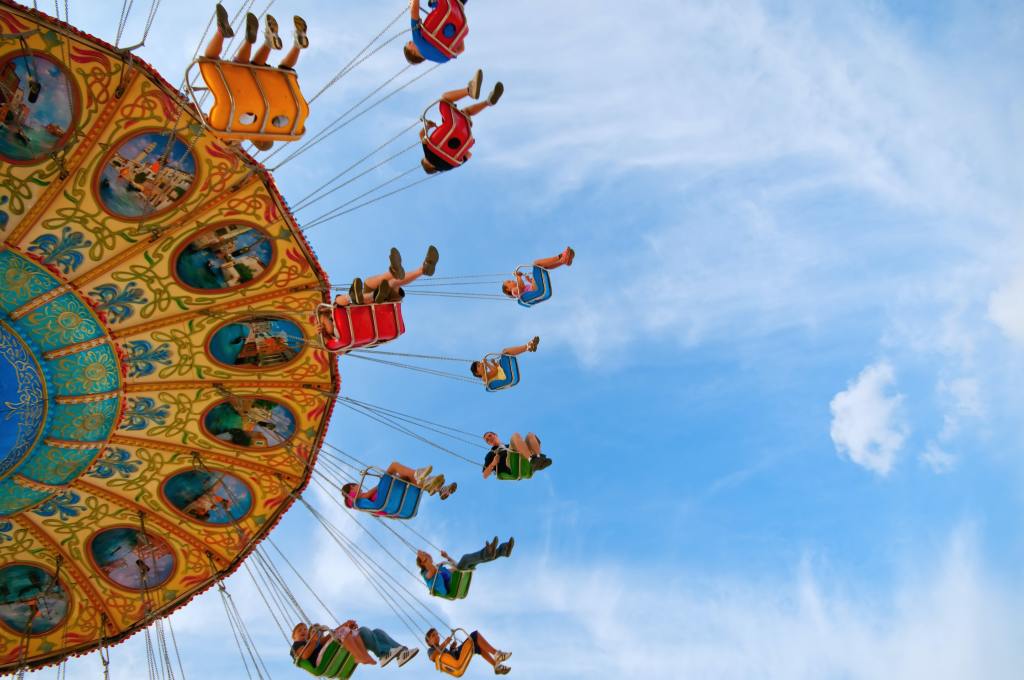What happens to our sense of free will – or control over our choices – along the journey of a troubled relationship with alcohol?
For many who have misused alcohol, like me, it’s free will that lights our first spark of intrigue for the stuff. Alcohol is part of our coming of age. In adolescence or early adulthood, we’re drawn to the first real experience of autonomy, or ownership of our bodies and minds, that drinking creates. That feeling presents a stark contrast to what we’re used to and what we may have come to resent, a sense of being “owned” by our parents or guardians, and by a society that has set so many inflexible rules throughout our lives.

But alcohol can prey upon that thrilling sense of free will, causing us to develop myopia, or a limited capacity to perceive and react to things in our environment. It urges us to behave without inhibition, with sometimes grisly effects on our physical and emotional well-being. In the long term, our self-image can take a blow. We may lose confidence and respect for ourselves, as well as the very sense of autonomy that alcohol excited in us in the first place. These losses can cause us to drink more often and more heavily in a desperate attempt to self-medicate, numbing our emotional pain and discomfort, mourning the shrinking of our once-expansive identity.
What is alcohol myopia?
In this post, I’ll explore a fascinating theory of alcohol’s effects that helps to explain this dramatic change in so many drinkers. Reading about it brought up some unpleasant memories for me, but has also been illuminating, prompting me to reflect on exactly how alcohol impacted my mental faculties and drinking behavior.
The theory of alcohol myopia suggests that alcohol narrows the range of what we’re able to perceive. When we drink, we zoom in on prominent environmental cues, paying less attention to subtle ones. You can think of it like tunnel vision, or nearsightedness, where we focus on things, people, words, and other stimuli in our immediate environment, but pay little attention to factors like context, the feelings of others, or how we’re being perceived.

Alcohol also impairs our emotions, judgment, and decision-making. We’re less able to regulate our reactions or to think through the potential consequences of our behavior. For instance, we may partake in risky sexual behavior because we’re more tuned into the quest for passion or pleasure than the less immediate presence of health risks or emotional impacts. Or we may initiate a physical or verbal fight with a stranger, hyper-focused on a single remark that triggered an emotional response rather than the full scope of what was said. We’ve all seen situations where a drunk person just can’t listen to reason, unable to drop some small frustration, letting things escalate and becoming more and more belligerent.
Myopia has three major effects on our cognitive processes, or how we think. First, it causes self-inflation. When we’re drunk, we ignore our flaws and have a heightened self-image, bordering on narcissism. This can lead us to act with a dangerous level of confidence and in ways we would not when sober. Second, alcohol creates a sense of relief from stress and anxiety. Though that feels great and benefits us to a degree, a certain amount of stress and anxiety is adaptive. When we drink too heavily, we lose the capacity to pay attention to things that might otherwise worry us, including present risks.

Finally, myopia leads to excessive behavior. Our brain’s frontal cortex isn’t working as it should to regulate urges that are normally considered socially unacceptable. For some people, these urges lead to aggressive responses like rage, physical destruction, or sexual assault. Other drinkers simply become more talkative, flirtatious, or adventurous – though at some level, even these behaviors can become problematic.
Myopia and free will
For a time, we may process our excessive drunken behaviors as acts of free will and empowerment. I certainly had a feeling of boundless autonomy as I stomped around my college campus and the bars, parties, and concerts I attended after graduating. I felt I was in control (or could be most of the time), ignoring my wake of destruction. That sense of autonomy was driven by my inflated self-image (which often plummeted the next day) and was given free rein due the relaxed boundaries created by my relief from stress and anxiety.

A big ego feels great when you’re drunk. I thought I was extremely funny, magnetic, and unique. In reality, I was often loud, careless, and rude. Alcohol’s myopic tunnel-vision effect made it difficult to recognize the difference. I was observing and responding to a limited range of things in my environment, overlooking other factors that were not as evident but were often more important.
My Hyde
Over a period of more years than I’d like to admit, I came to recognize that I was stuck in a pattern of alcohol use that caused me to tumble out of control every few months. My drunken sense of free will would mask my true identity, like Hyde overtaking Dr. Jekyll in Robert Louis Stevenson’s classic story. The warm and wonderful feeling of independence that initially prompted me to drink turned into a distinct, tunnel-visioned, destructive force that disembodied itself and acted on its own behalf, often without my knowing. What started as a shallow expression of free will eventually stole my deeper, inner strength and self-determination.

At times, I caused emotional pain to close friends and family, offended people, or degraded myself. If I couldn’t remember how things got out of control, I’d reconstruct the events using snippets of others’ recollections, text messages, and other piecemeal evidence. I longed for a linear cause-and-effect understanding, an excuse, vindication. It wasn’t there.
I wouldn’t wish the shame and remorse I felt on anyone. These feelings compounded over time into one giant shame-monster that took a lot of time and therapy to defeat. It got to the point where I didn’t care about myself or think I deserved anything different, and I was afraid to look in the figurative “mirror.” At times, I was utterly disgusted with who I’d become.

That may have been a distorted and melodramatic reaction to my mistakes, which weren’t that horrible in the grand scheme of things or compared to the difficulties others have faced. But these negative experiences are subjective and deeply personal. This is how the mind reacts to repeated abuse and injury, thanks to our complicated psychologies. We all have unique anxieties, traumas, and things we’re stuck on from our developmental years that make the shame beast uniquely challenging for each of us.
The guilt and self-loathing I experienced also created a vicious cycle that had me drinking more because I had low self-esteem – alcohol’s ultimate coup. I wanted to drown out my very sense of self, right along with the painful memories – to give in.
Reviving the will
I’m happy to report that it’s possible to escape this dreadful game of tug-of-war in emotion and behavior, and that the feelings of shame and damage are reversible. There’s a way out of this dark tunnel of myopia, and once we’re outside of it, we recover the ability to see the things that alcohol obscured.

For some, freedom comes from quitting alcohol entirely. For others, moderation may work. Either way, when we take control, we regain that sense of excitement and empowerment we had when we seized independence in our formative years. We gradually rebuild trust in ourselves as we continue along this new path, redeveloping a sense of dignity and self-respect.
Eventually we recognize that we are, in fact, empowered by the new tools we’ve worked to find and hone. These can include anything from a recovery program to introspection, therapy, meditation and mindfulness, new hobbies, creative pursuits, or the outdoors.

Our tools may even rekindle passions from before we first drank, bringing us in tune with the person we were meant to become and strengthening our newly reclaimed sense of free will. For me, that meant writing for pleasure and learning a new musical instrument. I had largely given up on these pursuits after college, and it wasn’t until I quit drinking that I was able to invest enough time and mental energy to pick them back up again and take them seriously. I can’t thank my sobriety enough for the sense of empowerment these tools have restored in me.
I rarely feel tempted by alcohol these days. I’m confident that the only way for me to truly stay in control, and to experience genuine free will, is to reject it. Instead, I must hang onto and refine these tools of healing, which have restored the much-loved, reclaimed and refitted vestiges of my past.
–Dana G


This is an absolutely fantastic post and really details exactly my journey and relationship with alcohol. “The guilt and self-loathing I experienced also created a vicious cycle that had me drinking more because I had low self-esteem – alcohol’s ultimate coup.” ….. SO TRUE. Stripped of any self esteem or resilience, it becomes so difficult to pull yourself up and out. I love this. Reminded me of life as it was and what I have achieved. Thank you. 💕
LikeLike
Hi Claire, thank you for your kind comment! I am glad my story is relatable, but also sorry you had to experience this horrible pattern as well. It’s all too common, I think. I’m so happy that you’ve found your path out of it, too!
LikeLiked by 1 person